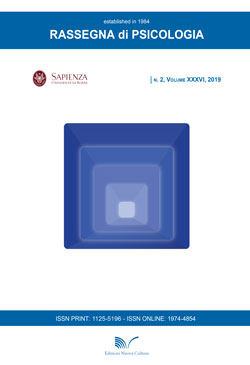The Zurich Adjustment Disorder Study: Diagnostics and Risk Factors of ICD-11 Adjustment Disorder Following Involuntary Job Loss
DOI:
https://doi.org/10.13133/1974-4854/16712Keywords:
ICD-11, DSM-5, adjustment disorder, stress-related disorders, job loss.Abstract
As part of the trauma and stress-related disorders’ category, adjustment disorder is a frequently occurring mental disorder that develops after stressful life events. Preoccupation and failure to adapt are the core symptoms of adjustment disorder in ICD-11. As this is a new definition, we conducted a large-scale study to gain a deeper understanding of the validity and applicability of the revised diagnostic criteria. N=334 individuals who experienced involuntary job loss were interviewed three times one to nine months after the last day at work (immediately, six- and twelve-months follow-up). For measuring adjustment disorder symptoms, a newly developed structured diagnostic interview and a self-report questionnaire evidenced satisfying psychometric properties. Approximately six months after discharge, the prevalence of a tentative diagnosis of adjustment disorder was 27.3% and decreased to 10.5% over the course of 12 months. We identified several event-/person-related, intra- and interpersonal correlates and predictors of adjustment disorder symptoms. The more specific definition of adjustment disorder, which leads to an improved detection of adjustment disorder cases, is in line with WHO's aim of improved ease of use of the disorder.Downloads
Published
2019-07-29
Issue
Section
Articles
License
Copyright (c) 2019 Louisa Lorenz, Lisa Makowski, Andreas Maercker

This work is licensed under a Creative Commons Attribution 4.0 International License.

